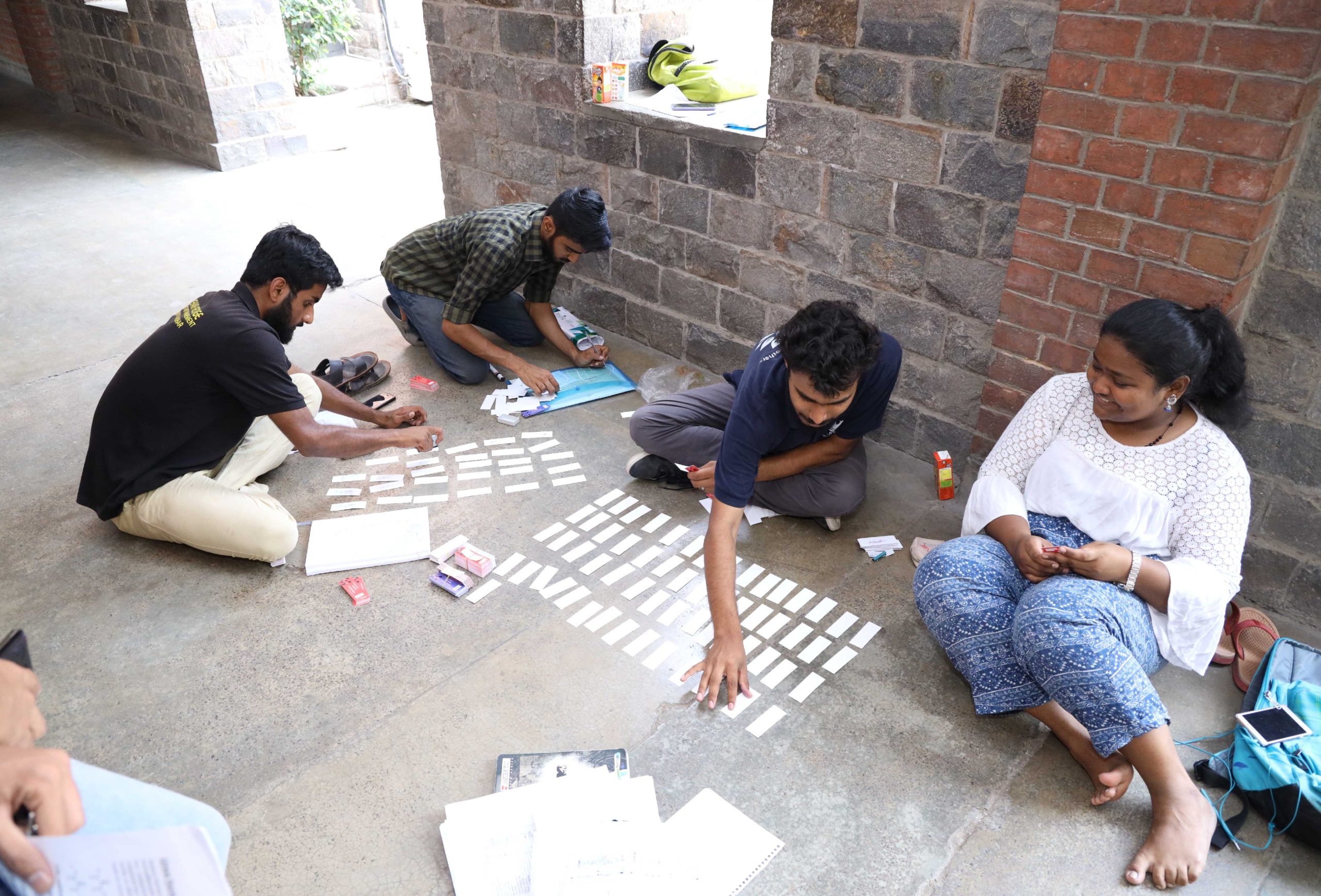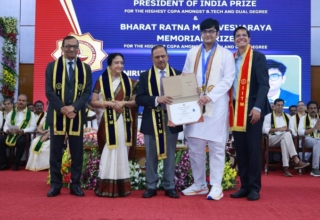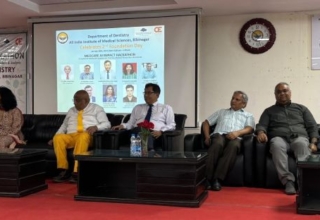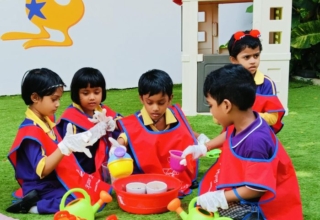

As compared to school education, the policy prescriptions announced for the higher education in the NEP 2020 seem to be doable. The rejigging of regulatory system and other far-reaching transformative measures will involve substantial legislative work and a broad consensus exists within the political spectrum to see it through.
However, it is very interesting to see that the very dispensation which forced the four-year undergrad degree program (FYUP) by Delhi University way back in 2013 to shut down and oppose the Foreign Educational Institutions (Regulation of Entry and Operations) Bill, 2010 for several years before its lapsing, brings in both the concepts back through NEP 2020. The then Vice Chancellor of DU, Prof Dinesh Singh, the man behind FYUP, now feels vindicated. “It is a verbatim reproduction of what we did with FYUP,” he said in an interview to a newspaper after NEP 2020 was made public. “Students used to tell me all the time how happy they were with the learning under the programme. They were learning to use data in a practical way. Students who did not know English said it made such a difference to learn the language in a creative way. Sanskrit students began to see how they could use computer programming to learn it better. All these happened, and this is what NEP also hopes to achieve,” he said.
Under the NEP 2020 scheme, the undergraduate degree will be of either 3 or 4-year duration, with multiple exit options within this period—a a certificate after completing 1 year in a discipline or field including vocational and professional areas, or a diploma after 2 years of study, or a Bachelor ’s degree after a 3-year programme. The 4-year multidisciplinary Bachelor’s programme, however, shall be the preferred option since it allows the opportunity to experience the full range of holistic and multidisciplinary education in addition to a focus on the chosen major and minors as per the choices of the student. Undertaking a Ph.D. shall require either a Master’s degree or a 4-year Bachelor’s degree with Research. The M.Phil. programme shall be discontinued.
In essence, for a student this is a major take away along with how gets into the higher education system. The National Testing Agency (NTA) will conduct a common aptitude test, as well as specialized common subject exams in the sciences, humanities, languages, arts, and vocational subjects, at least twice every year. “The NTA will serve as a premier, expert, autonomous testing organization to conduct entrance examinations for undergraduate and graduate admissions and fellowships in higher education institutions. The high quality, range, and flexibility of the NTA testing services will enable most universities to use these common entrance exams – rather than having hundreds of universities each devising their own entrance exams,” says the NEP 2020. The scheme will thus be more like SAT in USA and in a way good for student community. However, former education minister of Kerala, M.A. Baby thinks it is actually going to be a ‘National Denial Agency’. “The framers of the Constitution considered education as a state subject. It was during the Emergency that education was brought from the state list to the concurrent list. Now the BJP government has transferred it from the concurrent list to the central list,” a newspaper quoted him as saying. Irrespective of these voices, common entrances weights more merit and convenience and student mobility.
The Higher Education Commission of India (HECI) proposed under NEP 2020 will be the new UGC from a layman point of view all existing regulatory bodies (UGC, AICTE) will be repealed. It will have four verticals– the National Higher Education Regulatory Council (NHERC) as the regulator for higher education excluding medical and legal education; the National Accreditation Council (NAC) as the accreditor; the Higher Education Grants Council (HEGC) for funding and financing; and the General Education Council (GEC), the academic apex body for HEIs. “A National Higher Education Qualification Framework (NHEQF) will be formulated by the GEC and it shall be in sync with the National Skills Qualifications Framework (NSQF) to ease the integration of vocational education into higher education. Higher education qualifications leading to a degree/diploma/certificate shall be described by the NHEQF in terms of such learning outcomes,” says the policy document.
Importantly various professional councils, such as the Indian Council for Agricultural Research (ICAR), Veterinary Council of India (VCI), National Council for Teacher Education (NCTE), Council of Architecture (CoA), National Council for Vocational Education and Training (NCVET) will actas Professional Standard Setting Bodies (PSSBs) in close coordination with GEC.
By 2040, all higher education institutions (HEIs) shall aim to become multidisciplinary institutions. Since this process will take time, all HEIs will firstly plan to become multidisciplinary by 2030.
Under the new vision in the document, a university will mean a multidisciplinary institution of higher learning that offers undergraduate and graduate programmes, with high quality teaching, research, and community engagement. The definition of university will thus allow a spectrum of institutions that range from those that place equal emphasis on teaching and research i.e., Research-intensive Universities, those that place greater emphasis on teaching but still conduct significant research i.e. Teaching-intensive Universities. Meanwhile, an Autonomous degree-granting College (AC) will refer to a large multidisciplinary institution of higher learning that grants undergraduate degrees and is primarily focused on undergraduate teaching.
The policy document dealing with aspect of commercialization of education says multiple mechanisms with checks and balances will combat and stop the commercialization of higher education. This will be a key priority of the regulatory system. “All education institutions will be held to similar standards of audit and disclosure as a ‘not for profit’ entity. Surpluses, if any, will be reinvested in the educational sector. There will be transparent public disclosure of all these financial matters with recourse to grievance-handling mechanisms to the general public. All HEIs – public and private – shall be treated on par within this regulatory regime.”
One big promise of the NEP 2020 is that higher education ecosystem will reach every district of the country. There shall, by 2030, be at least one large multidisciplinary HEI in or near every district. “The aim will be to increase the Gross Enrolment Ratio in higher education including vocational education from 26.3% (2018) to 50% by 2035.” Institutions will have the option to run Open Distance Learning (ODL) and online programmes, provided they are accredited to do so, in order to enhance their offerings, improve access, increase GER, and provide opportunities for lifelong learning (SDG 4).
“Model public universities for holistic and multidisciplinary education, at par with IITs, IIMs, etc., called MERUs (Multidisciplinary Education and Research Universities) will be set up and will aim to attain the highest global standards in quality education. They will also help set the highest standards for multidisciplinary education across India.”
An International Students Office at each HEI hosting foreign students will be set up to coordinate all matters relating to welcoming and supporting students arriving from abroad. High performing Indian universities will be encouraged to set up campuses in other countries, and similarly, selected universities e.g., those from among the top 100 universities in the world will be facilitated to operate in India. A legislative framework facilitating such entry will be put in place, and such universities will be given special dispensation regarding regulatory, governance, and content norms on par with other autonomous institutions of India. Credits acquired in foreign universities will be permitted, where appropriate as per the requirements of each HEI, to be counted for the award of a degree.
The policy also says that HEIs shall also move away from high-stakes examinations towards more continuous and comprehensive evaluation. The Choice Based Credit System (CBCS) will be revised for instilling innovation and flexibility. HEIs shall move to a criterion-based grading system that assesses student achievement based on the learning goals for each programme, making the system fairer and outcomes more comparable.
Inclusion of research and internships in the undergraduate curriculum, faculty career management systems giving weightage to research, and the governance and regulatory changes that encourage an environment of research and innovation is part of research push and what the document says, ‘aspects are extremely critical for developing a research mindset in the country.” Establishment of a National Research Foundation (NRF) is surely a step in the right direction. NRF will provide a reliable base of merit-based but equitable peer-reviewed research funding, helping to develop a culture of research in the country through suitable incentives for and recognition of outstanding research, and by undertaking major initiatives to seed and grow research at State Universities and other public institutions where research capability is currently limited.
For the first time, the government has committed itself to increase the public investment in Education sector to reach 6% of GDP and is a welcome for record. “The Centre and the States will work together to increase the public investment in Education sector to reach 6% of GDP at the earliest. “ Also, the acknowledgement that improving school education has a direct bearing on higher education quality, is helping the narrative of fragmentation about education to change in favor of need of looking at it in unison and integrated manner. Surely, this is beginning of long years of the journey that will actually start bearing fruits of consolidation and transformation in the 2030-40 decade as said in the policy.
—Autar Nehru










